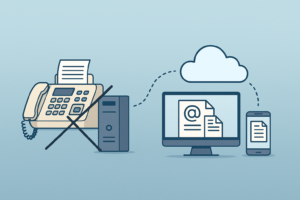As businesses continue to search for ways to improve speed, flexibility, scale, and accessibility, cloud computing has emerged as the go-to enterprise technology for operations. According to a 2014 report from Forrester Research, the public cloud computing market is expected to reach $191 billion by 2020, an massive leap from the total of $58 billion the industry was worth in 2013. Cloud applications are the driving force behind this growth, forecasted to earn more than $130 billion in revenue by the end of the decade.
"While the last several years can best be characterized as exploratory for most enterprises, cloud services and cloud platforms are now an undeniable part of the IT landscape," Forrester's James Staten wrote in an April 2014 blog post. "And based on Forrester enterprise CIO inquiries, the shift has begun from exploration of cloud as a potential option, to rationalization of cloud services within the overall IT portfolio. And this shift to the second stage of technology adoption yields significantly higher market revenues than the exploratory phase."
Aside from all of the various cloud applications and services that are available, companies are also turning to the cloud in order to achieve benefits like cost efficiency, process improvement and business transformation. In a global survey conducted by professional services firm KPMG, industry leaders ranked cloud computing as the technology that will have the biggest impact on driving business transformation. According to respondents, the biggest use of the cloud is to achieve cost efficiency, but the survey also revealed that a growing number of organizations are leveraging the cloud to make large-scale changes both within individual business units and across the entire company.
"Cloud computing was cited by industry leaders as the technology that will cause the most business transformation."
Among the most popular transformative uses of enterprise cloud technology was the ability to more effectively enable enterprise mobility, improve alignment and interaction with all levels of the supply chain, and better leverage data to provide business insights. Today's companies are realizing the importance of being able to connect with their consumers, and the cloud offers a more effective way of doing so. Retailers can leverage the cloud to gain a competitive advantage by offering personalized and immediate service while health care providers are using the cloud to power clinical research and improve quality of care.
 Businesses are investing in the cloud because of its transformative abilities.
Businesses are investing in the cloud because of its transformative abilities.FoIP highlights the best of the cloud
Much of the reason the cloud is able to drive so much enterprise technology transformation for its operations is because of the wide range of services and programs that can be accessed through it. One of these services is fax-over-IP. FoIP systems employ the best parts of the cloud to help businesses improve their communication processes. With FoIP, faxes are sent over the Internet as opposed to phone lines, which greatly increases the mobility of traditional faxing and offers better security than other online message processes like email.
FoIP services can also add to the cost benefits the cloud already provides. A dedicated fax line is no longer necessary, eliminating expensive payments to the phone company. Fax over IP provider FaxCore also makes it possible to enable an existing fax machine to be FoIP-capable, saving money on new, expensive equipment.
Enhance enterprise communication, collaboration and compliance efforts with a proven FoIP solution from FaxCore. Contact FaxCore today to learn more about their 'Partly-Cloudy' fax solutions.




